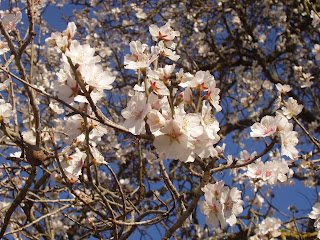Seeds of freedom
Physicist Vandana Shiva *, in a video launching the global Seed Freedom Campaign, calls this ownership of entire new species a form of slavery, and calls upon farmers and consumers to fight the privatisation of the genetic commons.
Could it be that she is being naive? Facing the spectre of world hunger amid continued population growth, maybe we will have to let go of our sentimental attachment to traditional farmers saving seeds, and transition to high-tech agriculture so that we can improve yields per hectare.
After all, we cannot clear much more cropland at the expense of forests and wetlands.
And to finance the enormous long-term investment necessary to engineer high-yielding, drought-resistant, pest-resistant varieties, don't we need to enforce a strong system of patents?
This position seems reasonable, but it is fraught with assumptions that collapse under close scrutiny.
First and foremost is the notion that we need chemical pesticides, herbicides and genetically modified organisms (GMOs) to feed the hungry.
Surely each new innovation brings higher crop yields, right?
Surely yields are higher when you kill the bugs than when you don't, higher when you use improved strains than when you don't?
Not really.
Holding all other variables constant, certainly a large wheat field will produce more if it is treated with chemical herbicides, pesticides and fertilisers.
But organic agriculture, and especially permaculture and traditional peasant agriculture, don't hold variables constant at all.
Each farming culture adapts over time to the unique characteristics of the local soil, biome and climate. Farmer and land co-evolve over generations.
Numerous studies show that when organic agriculture is practised well, it can bring double or triple the yields of conventional techniques. With intensive intercropping on mixed permaculture farms, yields can behigher still.
It is a myth that mechanised, chemical, GMO agriculture maximises yield per hectare.
From here
* If you have 30 minutes listen to her wise words.
Could it be that she is being naive? Facing the spectre of world hunger amid continued population growth, maybe we will have to let go of our sentimental attachment to traditional farmers saving seeds, and transition to high-tech agriculture so that we can improve yields per hectare.
After all, we cannot clear much more cropland at the expense of forests and wetlands.
And to finance the enormous long-term investment necessary to engineer high-yielding, drought-resistant, pest-resistant varieties, don't we need to enforce a strong system of patents?
This position seems reasonable, but it is fraught with assumptions that collapse under close scrutiny.
First and foremost is the notion that we need chemical pesticides, herbicides and genetically modified organisms (GMOs) to feed the hungry.
Surely each new innovation brings higher crop yields, right?
Surely yields are higher when you kill the bugs than when you don't, higher when you use improved strains than when you don't?
Not really.
Holding all other variables constant, certainly a large wheat field will produce more if it is treated with chemical herbicides, pesticides and fertilisers.
But organic agriculture, and especially permaculture and traditional peasant agriculture, don't hold variables constant at all.
Each farming culture adapts over time to the unique characteristics of the local soil, biome and climate. Farmer and land co-evolve over generations.
Numerous studies show that when organic agriculture is practised well, it can bring double or triple the yields of conventional techniques. With intensive intercropping on mixed permaculture farms, yields can behigher still.
It is a myth that mechanised, chemical, GMO agriculture maximises yield per hectare.
From here
* If you have 30 minutes listen to her wise words.
